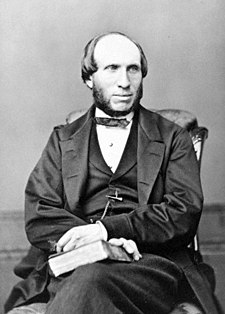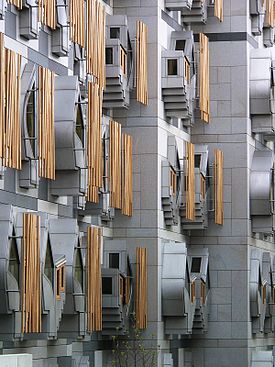| Main Page | Selected articles 1 | Selected articles 2 | Selected biographies | Selected quotes | Selected pictures | Featured Content | Categories & Topics |
Introduction
 |

|
|

| ||
Scotland (Scots: Scotland; Scottish Gaelic: Alba) is a country that is part of the United Kingdom. It contains nearly one-third of the United Kingdom's land area, consisting of the northern part of the island of Great Britain and more than 790 adjacent islands, principally in the archipelagos of the Hebrides and the Northern Isles. To the south-east, Scotland has its only land border, which is 96 miles (154 km) long and shared with England; the country is surrounded by the Atlantic Ocean to the north and west, the North Sea to the north-east and east, and the Irish Sea to the south. The population in 2022 was 5,436,600 and accounts for 8% of the population of the UK. Edinburgh is the capital and Glasgow is the largest of the cities of Scotland.
The Kingdom of Scotland emerged as an independent sovereign state in the 9th century. In 1603, James VI inherited the Kingdom of England and the Kingdom of Ireland, forming a personal union of the three kingdoms. On 1 May 1707 Scotland and England combined to create the new Kingdom of Great Britain, with the Parliament of Scotland subsumed into the Parliament of Great Britain. In 1999 a Scottish Parliament was re-established, and has devolved authority over many areas of domestic policy. The country has a distinct legal system, educational system, and religious history from the rest of the UK, which have all contributed to the continuation of Scottish culture and national identity. Scottish English and Scots are the most widely spoken languages in the country, existing on a dialect continuum with each other. Scottish Gaelic speakers can be found all over Scotland, however the language is largely spoken natively by communities within the Hebrides. The number of Gaelic speakers numbers less than 2% of the total population, though state-sponsored revitalisation attempts have led to a growing community of second language speakers.
The mainland of Scotland is broadly divided into three regions: the Highlands, a mountainous region in the north and north-west; the Lowlands, a flatter plain across the centre of the country; and the Southern Uplands, a hilly region along the southern border. The Highlands are the most mountainous region of the British Isles and contain its highest peak, Ben Nevis, at 4,413 feet (1,345 m). The region also contains many lakes, called lochs; the term is also applied to the many saltwater inlets along the country's deeply indented western coastline. The geography of the many islands is varied. Some, such as Mull and Skye, are noted for their mountainous terrain, while the likes of Tiree and Coll are much flatter. (Full article...)
Selected article

The Acts of Union (Scottish Gaelic: Achd an Aonaidh) were two Acts of Parliament: the Union with Scotland Act 1706 passed by the Parliament of England, and the Union with England Act 1707 passed by the Parliament of Scotland. They put into effect the terms of the Treaty of Union that had been agreed on 22 July 1706, following negotiation between commissioners representing the parliaments of the two countries. By the two Acts, the Kingdom of England and the Kingdom of Scotland—which at the time were separate states in a personal union—were, in the words of the Treaty, "United into One Kingdom by the Name of Great Britain".
The two countries had shared a monarch since the Union of the Crowns in 1603, when King James VI of Scotland inherited the English throne from his double first cousin twice removed, Queen Elizabeth I. Although described as a Union of Crowns, and in spite of James's acknowledgement of his accession to a single Crown, England and Scotland were officially separate kingdoms until 1707 (as opposed to the implied creation of a single unified kingdom, exemplified by the later Kingdom of Great Britain). Prior to the Acts of Union, there had been three previous attempts (in 1606, 1667, and 1689) to unite the two countries by Acts of Parliament, but it was not until the early 18th century that both political establishments came to support the idea, albeit for different reasons.
The Acts took effect on 1 May 1707. On this date, the English Parliament and the Scottish Parliament united to form the Parliament of Great Britain, based in the Palace of Westminster in London, the previous home of the English Parliament. This specific process is sometimes referred to as the "union of the Parliaments" in Scotland. (Full article...) Read more ...
Selected quotes
" ... Authors and captured criminals are the only people free from routine ... "
" ... The world is neither Scottish, English, nor Irish, neither French, Dutch, nor Chinese, but human ... "
In the news

- 7 May 2024 – Premiership of John Swinney
- The Scottish Parliament votes to elect John Swinney as First Minister of Scotland with 64 votes in favour and seven abstentions from the Scottish Greens. (BBC News)
- 6 May 2024 – 2024 Scottish National Party leadership election
- John Swinney is elected leader of the Scottish National Party following the resignation of First Minister Humza Yousaf. (The Guardian)
- 4 May 2024 – International reactions to the Israel–Hamas war
- Palestinian doctor and rector at the University of Glasgow Ghassan Abu-Sittah is denied entry into France after landing at Charles de Gaulle airport on his way to speak at the French Senate. Last month, he was denied entry into Germany. (Al Jazeera)
- 1 May 2024 – 2024 Scottish government crisis
- The Scottish National Party administration survives the vote of no confidence earlier this week, prompting the party to seek a replacement for outgoing First Minister Humza Yousaf. (Al Jazeera)
- 29 April 2024 – 2024 Scottish government crisis
- Ahead of a planned vote of no confidence, Scottish First Minister Humza Yousaf announces that he will resign from office. (CNBC) (The New York Times)
- 25 April 2024 – 2024 Scottish government crisis
- Premiership of Humza Yousaf
Selected biography

Sir John Struthers MD FRCSE FRSE (21 February 1823 – 24 February 1899) was the first Regius Professor of Anatomy at the University of Aberdeen. He was a dynamic teacher and administrator, transforming the status of the institutions in which he worked. He was equally passionate about anatomy, enthusiastically seeking out and dissecting the largest and finest specimens, including whales, and troubling his colleagues with his single-minded quest for money and space for his collection. His collection was donated to Surgeon's Hall in Edinburgh.
Among scientists, he is perhaps best known for his work on the ligament which bears his name. His work on the rare and vestigial ligament of Struthers came to the attention of Charles Darwin, who used it in his Descent of Man to help argue the case that man and other mammals shared a common ancestor ; or "community of descent," as Darwin expressed it.
Among the public, Struthers was famous for his dissection of the "Tay Whale", a humpback whale that appeared in the Firth of Tay, was hunted and then dragged ashore to be exhibited across Britain. Struthers took every opportunity he could to dissect it and recover its bones, and eventually wrote a monograph on it.
Selected picture
The Scottish Parliament Building (Scottish Gaelic: Pàrlamaid na h-Alba, Scots: Scots Pairlament Biggin) is the home of the Scottish Parliament at Holyrood, within the UNESCO World Heritage Site in central Edinburgh. It was designed by Enric Miralles, the Catalan architect,.and has won a number of awards, including an award at the VIII Biennial of Spanish Architecture, the RIAS Andrew Doolan Award for Architecture, and the 2005 Stirling Prize, the UK's most prestigious architecture award.
Photo credit: Photo Credit: Wangi
Did You Know...

- ... that former Scottish Conservative leader Ruth Davidson said that she would swim in Loch Ness naked if the SNP won more than 50 seats at the 2019 United Kingdom general election?
- ... that prior to winning their first of nine consecutive titles in the 1965–66 season, Celtic had not been champions of the Scottish Football League for 12 years?
- ... that despite his defeat at the battle of Pitgaveny, both of Duncan's sons would later rule Scotland?
- ... that Thomas Fairfax, Lord General of the New Model Army, resigned his commission rather than invade Scotland in 1650?
- ... that Helen Steven shared the Gandhi International Peace Award for her opposition to the nuclear submarine base in Scotland?
- ... that the bryozoan Walkeria tuberosa is sometimes referred to as Valkeria tuberosa despite being named after the Scottish natural historian John Walker?
- ... that the Scottish judge Lord Duthie served as an officer in the Royal Naval Reserve?
- ... that after the Battle of Winwick in 1648 some Scottish prisoners were sold as slaves?
Get involved
For editor resources and to collaborate with other editors on improving Wikipedia's Scotland-related articles, see WikiProject Scotland.
To get involved in helping to improve Wikipedia's Scotland related content, please consider doing some of the following tasks or joining one or more of the associated Wikiprojects:
- Visit the Scottish Wikipedians' notice board and help to write new Scotland-related articles, and expand and improve existing ones.
- Visit Wikipedia:WikiProject Scotland/Assessment, and help out by assessing unrated Scottish articles.
- Add the Project Banner to Scottish articles around Wikipedia.
- Participate in WikiProject Scotland's Peer Review, including responding to PR requests and nominating Scottish articles.
- Help nominate and select new content for the Scotland portal.
Do you have a question about The Scotland Portal that you can't find the answer to?
Post a question on the Talk Page or consider asking it at the Wikipedia reference desk.
Related portals
Other language versions
Associated Wikimedia
The following Wikimedia Foundation sister projects provide more on this subject:
-
Commons
Free media repository -
Wikibooks
Free textbooks and manuals -
Wikidata
Free knowledge base -
Wikinews
Free-content news -
Wikiquote
Collection of quotations -
Wikisource
Free-content library -
Wikispecies
Directory of species -
Wikiversity
Free learning tools -
Wikivoyage
Free travel guide -
Wiktionary
Dictionary and thesaurus






































